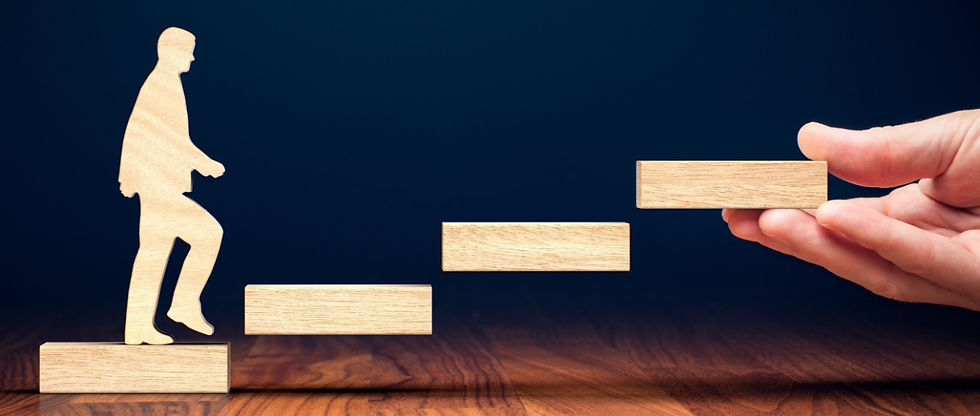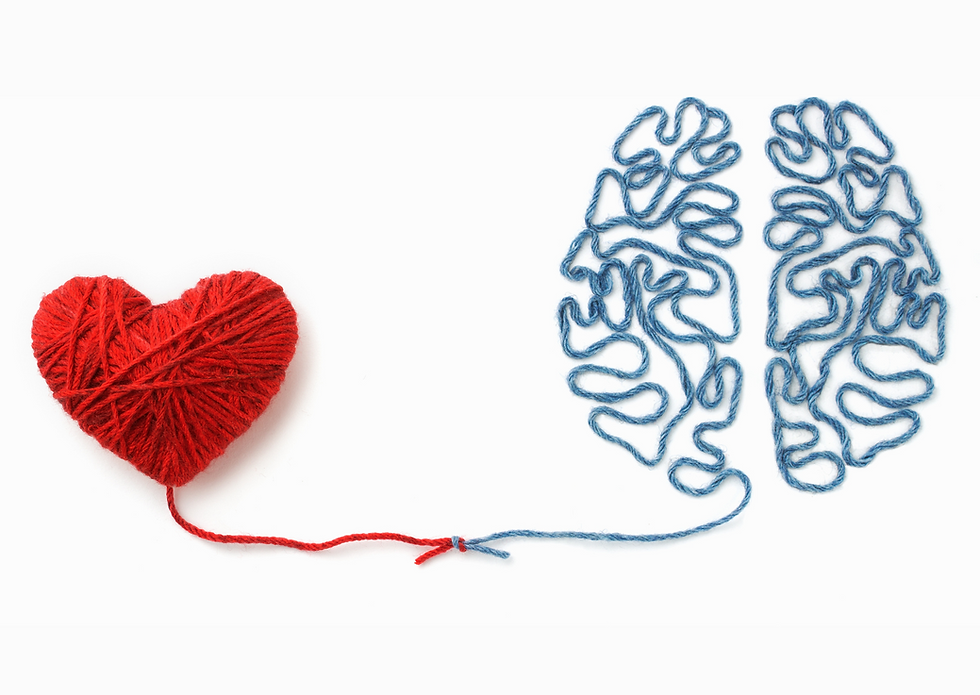Developing Adaptability
- Mary Ely

- Oct 15, 2022
- 6 min read
RocheMartin defines Emotional Intelligence by a set of 10 competencies and this is one in a series of blogs covering each one.

For me, this mindset sums up adaptability:
We are where we are.
Now what are our options and what are we going to do?
The RocheMartin definition breaks Adaptability down into 3 components:
Acceptance
Accepting the situation helps keep our minds calm so we are able to stay thinking logically about what to do next. This opens the door for the next two components.
Open-mindedness
Being able to generate and willingly consider different ideas and options.
Flexibility
Willing to give some or all of those options a go. Experimenting with different ideas, ways of thinking and behaving.
To find out more and why it's so important, have a look at this blog.
A few ideas to increase your Adaptability

Explored in more detail below:
Being ok with acceptance
What to do if you're struggling to accept your current situation
Developing an open mind
If you always do what you've always done, you'll always get what you've always got
Letting go of being right and thinking 'opinion' instead
Developing flexibility - keeping it simple, manageable and comfortable
Being OK with acceptance
When it comes to being adaptable, 'acceptance' may feel slightly counter-intuitive...
How can adaptability be dependent on accepting the current situation?
Surely there's something we want to change here otherwise we wouldn't need to know how to adapt?!
But...as we can learn from the well-researched Acceptance and Commitment Therapy, fighting against the current situation or desperately trying to ignore where we are now is a bit like struggling in quicksand. The more you struggle the deeper you go and the less able you are to find a way out.

If we focus on how stuck we are or how we got here, or how bad it is, we're more likely to feel stressed. And that means we'll lose our capacity for logical thought and our (probably irrational) emotions will take over.
So we need to stop fighting and start accepting.
Our current situation may not be great. It may be awful...and it may be one of the shades in between. And there may be things that we're dwelling on that we feel have led us to this point. But the one thing we can be certain of is ...
we are where we are
And accepting that doesn't mean giving up, giving in or not doing anything about it.
We're just not fighting against the situation as that will dump us in the middle of some negative emotions and leave us in a position where we won't be able to figure out our next move.
Acceptance also means accepting the things that we can't control. Letting them go and focusing on what we can control.
So next time you want a different result or are facing a change...even if you don't like it, take a few deep breaths, acknowledge that 'you are where you are' and commit to calmly finding a way forward.
What to do if you're struggling to accept your current situation?
Due to the nature of events that require some adaption, you may not be able to get to acceptance immediately, as you may already have been dumped in the middle of some negative emotion.
It's a bit like being a kid, who's playing very happily, and then some well-meaning adult takes your toys away. It feels like the world has ended and it's easy for major tantrum to follow - a variety of emotions like anger, hurt, resentment, frustration, sadness and so on.

And the same can happen as an adult when faced with the need to change.
Acceptance is the key here too.
As an adult, we need to accept those emotions and think our way out of them. This blog can help you do that. It includes links to some other blogs that explain the things that help me do that - just in case what works for me works for you.
Identify ALL the emotions coming up for you in the face of change and work through each one until you feel OK.
Developing an open-mind
Here are a few things to consider if you want to open up your mind and give yourself more chances of achieving what you want:
If you always do what you've always done, you'll always get what you've always got
Let go of the need to be right and think 'opinion' instead
If you always do what you've always done, you'll always get what you've always got
We all have our own unique way of seeing things, built up from everything we have learnt and experienced up to this moment in time. And we use that, together with the information available to us in the moment, to make what we believe are the best conclusions, judgments and decisions. And we act accordingly.
But if we're in a situation and our existing perspective isn't working we may get stuck
Only being able to see things from our existing perspective can block us from seeing other options. It's like anything other than what we think has been greyed out.

This blog gives you a few ideas on how you might change your perspective to open up new options, Do something different and get a different result :)
Let go of the need to be right and think 'opinion' instead
Part of our perspective is what we deem to be right and wrong. Right way of doing things, right things to say or do etc. And we never deliberately go out to do what we think is wrong (more details in this blog).
But depending on everything you've learnt and experienced in your life and the bits of information you're using right now, your version of 'right' could be very different to somebody else's.

They will have equally valid reasons for believing their right is right based on their perspective.
And here's the thing...
Their right may actually be more helpful than yours. Or it might enrich yours!
So as much as you don't like being told you're wrong, or your opinion isn't valid, it's worth hearing them out.
You might just discover something that could save you lots of time and energy and actually make it easier for you to get what you want.
For example -
Everyone used to think the world was flat and look what's happened since we opened our minds to a different opinion?
Nobody thought that running a 4 minute mile was possible until Roger Bannister showed them how and then lots of people did it.
I grew up believing the only way to succeed was to work HARD. So imagine my surprise when I met people who were successful but having a much nicer time than me. Now why wouldn't I choose to challenge what I'd grown up with, learn from them and change my mind to be more like there's?
As adults, we only truly learn when we adjust the way we think.
So if what you've learnt up to this point isn't working for you, why not
Assume that your 'right' is one opinion and see what useful things you can learn from others
Developing flexibility - keeping it simple, manageable and comfortable
Even if something's not working for us, it's familiar, and
Dropping what's familiar to do something different
can feel scary, overwhelming and uncomfortable
...which is enough to put anyone off!

So the easiest way to flex is to
make what you need to do
feel as simple, manageable and as comfortable as possible.
and that all starts with how you think.
How could you make your particular need to flex feel more simple, manageable and comfortable?
Write down all the things that make it seem scary, overwhelming and uncomfortable and brainstorm options for each one
Is it like something you CAN do or you've done before in a different context?
What skills, experience and strengths could you use to help you?
What are you saying to yourself? What if you toned down the language in your head and told yourself this was 'a little challenging' rather than 'terrifying' for example
What if you broke things down into really small chunks and planned your approach?
What if the catastrophic outcome you're imagining turned out to be completely unfounded?
What if you imagined instead that all your success was guaranteed? How easy would it be to be flexible now?
Does treating this like an experiment rather than a 'do or die', 'one-chance-only-event' allow you to have a go?
Coaching
Coaching is by far the most efficient, effective, engaging, empowering and enjoyable way to build any of the Emotional Intelligence competencies.
Helping you to develop, refine and embed your own personalised strategies for each competency.

If you’re interested in understanding your level of emotional intelligence using one of the RocheMartin assessments or would like to explore coaching for developing components of it like Adaptability, you can book a free call here.
And if you'd like to try out my monthly emails that provide a roundup of my blogs as well as other insights, you can sign up here.





Comments